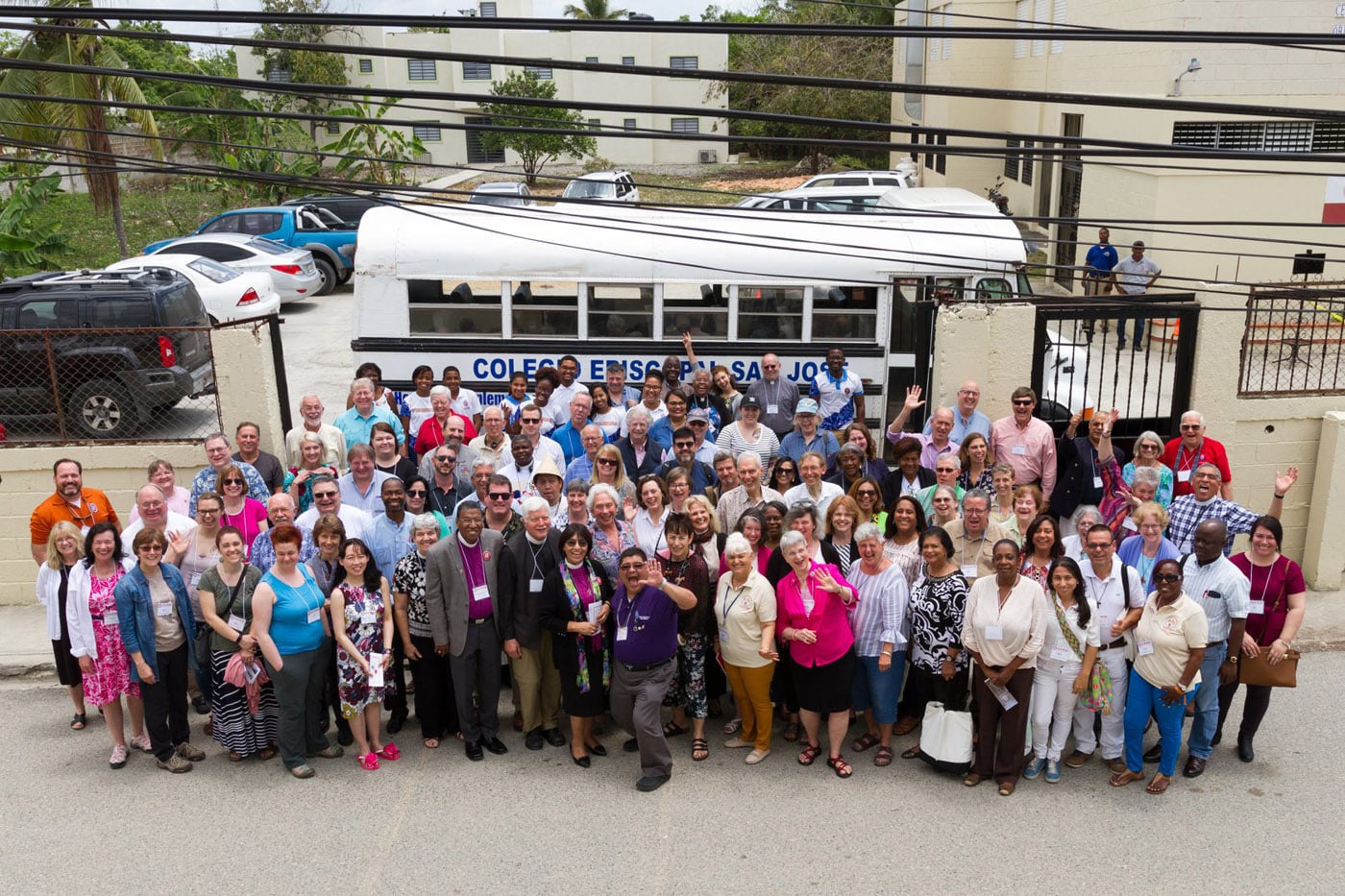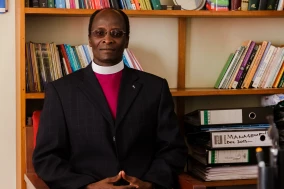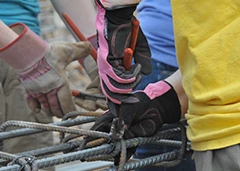Learn more about our work and follow us on Facebook.
Share Your Stories
#WorldMissionEDOT #edot
The laity and clergy who make up the Committee for Global Partnerships in Mission are appointed by the bishop and drawn from around the diocese. Together with our Executive The Rt. Rev. Jeff Fisher, in faithfulness to the gospel call to mission and to our own baptismal promises, our purpose is:
- To encourage and oversee the official companion relationships with other dioceses in the Anglican Communion
- To encourage and serve the work of domestic and foreign missions supported by congregations in the Diocese of Texas, especially through a program of grants
- To serve the cause of global reconciliation through relations with the Anglican Communion and in the promotion of the Sustainable Development Goals (SDGs)
The Committee for Global Partnerships in Mission encourages the building of relationships, seeks to facilitate the sharing of stories, and oversees two types of grant funding for projects. To share about how you are partnering with others in God’s mission in the world, or for general questions, please contact our Chair: The Rev. Meredith Holt Crigler.

Companion Dioceses
The Committee for Global Partnerships in Mission oversees companion relationships with other dioceses in the Anglican Communion worldwide. Dioceses in companion relationships take on responsibility for each other by reaching across cultural and geographic boundaries to form new friendships, prayer partners, pathways for mutual learning, and an expanded awareness of each other and the world. Together we are building mutually transformative, long-lasting relationships that are focused on amistad, friendship. As we are all missionaries of the Diocese of Texas, will you join us, as we join with our sisters and brothers across the Anglican Communion in undertaking God’s mission?
The Diocese of Texas has a formal companion relationship with the Anglican Diocese of Southern Malawi in Africa, the Diocese of Costa Rica in the Anglican Church of Central America and the Episcopal Diocese of North Dakota. As we are all part of this companionship, we ask that all mission trips to our companion dioceses have a few spots available to others from the diocese to apply to join. Here is a flier sharing more about our companionship with these three dioceses. If you are traveling to one of our companion dioceses (Costa Rica, Southern Malawi or North Dakota), please connect with the board during your planning.
Southern Malawi

Our relationship with Malawi extends back to the 1960s, when motorbikes were provided for priests to travel to worship centers in rural areas. Today, our partnership is based upon a 2010 companion diocese agreement with the Anglican Diocese of Southern Malawi. We have partnered with the Malawian church to increase its capacity for governance and sustainability. Their diocese now has a professional administrator, laity directed Development Board to oversee and administer projects, and a Development Officer to direct projects.
 Bishop Alinafe Kalemba was consecrated the second bishop of Southern Malawi in October, 2013. The Bishop was born May 7, 1067 and is a Nyanja by tribe. He comes from Msamala Village in the Nkhota-kota district. Baptized in the Anglican tradition in 1973, he was confirmed in 1981 and served as Anglican Student Warden at Nkhota-kota Secondary School where he was also Deputy Head Boy.
Bishop Alinafe Kalemba was consecrated the second bishop of Southern Malawi in October, 2013. The Bishop was born May 7, 1067 and is a Nyanja by tribe. He comes from Msamala Village in the Nkhota-kota district. Baptized in the Anglican tradition in 1973, he was confirmed in 1981 and served as Anglican Student Warden at Nkhota-kota Secondary School where he was also Deputy Head Boy.
Selected to Malawi Polytechnic to study engineering, he withdrew in the second year to seek ordained ministry. He was well known for his religious Chichewa poetry recitals at youth gatherings while studying at the Polytechnic. He enrolled at Zomba Theological College and graduated in 1993, ordained as a deacon and served at All Saints in Thyolo district. He was ordained priest in 1994 at St. Paul’s Cathedral in Blantyre. Following his theological training, Bishop Kalemba graduated from Chancellor College with a BA in theology and served at Ndirande, Likwenu and Balaka parishes. He received a masters in theological research from Durham University in 2000. He became the Bishop’s Chaplain in 2001 where he worked at the diocesan center and as rector for South Lunzu Parish in Blantyre.
In 2005, Bishop Kalemba became the founding dean of the Anglican Council of the Malawi Theological College and was named a Canon at St. Paul’s the same year. He later sered as a member of the Mission and Evangelism department of Malawi Council of Churches and served twice as chair of the Pastor’s Fraternals in Blantyre and as chair of the Board of Theological Studies for the University of Malawi.
Bishop Kalemba is married to Mercy Chikonda and they have two daughters, Mphatso and Alinane. Mercy is a teacher and holds an education degree from the University of Malawi.
Costa Rica
The Diocese of Texas has a formal companion relationship with the Diocese of Costa Rica in the Anglican Church of Central America.

La Iglesia Episcopal Costarricense of the Anglican Church of Central America is home to 17 congregations scattered mainly in the central valley and on the Caribbean coast. The Caribbean coast, which has been largely English-speaking and Afro-Caribbean in culture and ethnicity, is changing due to a continuing influx of migrating Costa Ricans and immigrant Nicaraguans who are more ethnically Spanish and mestizo in lineage, culture and language.
The diocese is planting churches, opening whole-child learning and wellness centers in impoverished communities, expanding an HIV/AIDS women’s co-op, partnering with coffee producers and much more. The Diocese House in San Jose is home to a 30-bed guest accommodation, a full-time American Companion Officer and is close to language schools. The Diocese of Costa Rica understands itself to be a missionary church and grabs onto big ideas and expects the Spirit to lead in miraculous ways.
The diocese focuses primarily in three areas: 1) Expansion of the church, 2) Christian education and theological reflection, and 3) Christian testimony through service.
For more information about this companion diocese relationship, contact Marcia Quintanilla, Diocese of Texas liaison.
North Dakota

In the state of North Dakota, there are six Native American Reservations, each with a sizable Episcopal population; six of North Dakota’s 21 Episcopal churches lie on reservations. Standing Rock, the largest reservation, is comprised primarily of Dakota and Lakota Sioux people, and is home to Camp Gabriel, an Episcopal youth camp. There are several majority Anglo congregations in North Dakota, with members from a wide range of socioeconomic backgrounds as well as vibrant Sudanese-American communities.
While parts of the state are thriving under the current economic boom, many North Dakotans live far below the poverty line, and in some of the poorest counties in the United States. Church members who met with Diocese of Texas representatives expressed a strong desire to partner in ministry, rather than simply receiving financial aid. Many spoke of the potential for transformative experiences awaiting Texan visitors to the reservations of North Dakota, and hoped also to come to the Diocese of Texas to share in ministries here. In fact four youth volunteers from North Dakota worked on a home rehabilitation project in west Houston in June, 2014. It is hoped that this mutual sharing of ministry will strengthen the partnership between both dioceses.
Grants
The Committee for Global Partnerships in Mission grants aim to further the Gospel of Jesus Christ who said “I have come that they may have life, and have it abundantly” (John 10:10). We focus on grants that will bring an abundant life to all, particularly those who due to prejudice, injustice, and poverty, live in scarcity.
Small Grant Funding: maximum $3000 each. Requests can be for any worthy small event or project that enhances domestic or foreign mission. Congregations in the diocese are especially encouraged to apply for grants to fund in part projects and materials for their missional relationships.
SDG Grant Funding: funded by 0.7% of the diocesan budget. Proposals must address the Sustainable Development Goals. It is the practice of the board to fund and partner with organizations and agencies who have a proven tract record of financial accountability, especially when it comes to micro-financing. If you are unsure about your proposal, please don’t hesitate to contact us before you apply.
Applications and guidelines for Small Grants or SDG Grants:
Applications, other than EDOT Companion Dioceses, received after April 1st, August 1st, or November 15th, likely will not be considered until the next following meeting. For more information about grant funding, please contact our board chair, The Rev. Meredith H. Crigler. Grant applications may be submitted to Kathy Dunn, Executive Assistant to The Rt. Rev. Jeff Fisher.
